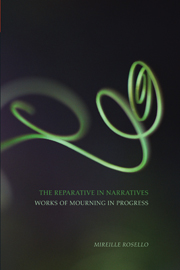Crossref Citations
This Book has been
cited by the following publications. This list is generated based on data provided by Crossref.
2014.
A Companion to Contemporary French Cinema.
p.
631.
Ishtiyaque, Farah
2015.
Suturing The Memories Of The Liberation War Of 1971: The Narrative Poetics Of Sorayya Khan’sNoor.
European Journal of English Studies,
Vol. 19,
Issue. 3,
p.
301.
Fevry, Sébastien
2017.
Sepia cinema in Nicolas Sarkozy’s France: nostalgia and national identity.
Studies in French Cinema,
Vol. 17,
Issue. 1,
p.
60.
Vendetti, Maria
2018.
Testimonial texts of torture during the Algerian War: Paratexts and the obscene.
French Cultural Studies,
Vol. 29,
Issue. 2,
p.
177.
Talbayev, Edwige Tamalet
2018.
Whiting out Algeria: On the Limits of Assia Djebar'sLe Blanc de l'Algérieas Post-Traumatic Liturgy.
CounterText,
Vol. 4,
Issue. 2,
p.
212.
El Guabli, Brahim
2019.
Languages of Memory: Toward Complementarity of the Mnemonic Spheres of the Algerian War.
The Yearbook of Comparative Literature,
Vol. 62,
Issue. ,
p.
315.
Flood, Maria
2020.
Paris Is Postcolonial.
Cultural Politics,
Vol. 16,
Issue. 1,
p.
144.
Ben Labidi, Imed
2020.
The Vanishing Native.
Cultural Politics,
Vol. 16,
Issue. 1,
p.
24.
2021.
Decolonizing Memory.
p.
1.
2021.
Decolonizing Memory.
p.
27.
2021.
Decolonizing Memory.
p.
63.
2021.
Decolonizing Memory.
p.
141.
2021.
Decolonizing Memory.
p.
98.
2021.
Decolonizing Memory.
p.
197.
2021.
Decolonizing Memory.
p.
168.
2021.
Decolonizing Memory.
p.
255.
Paci, Deborah
2022.
The Palgrave Handbook of Digital and Public Humanities.
p.
481.





